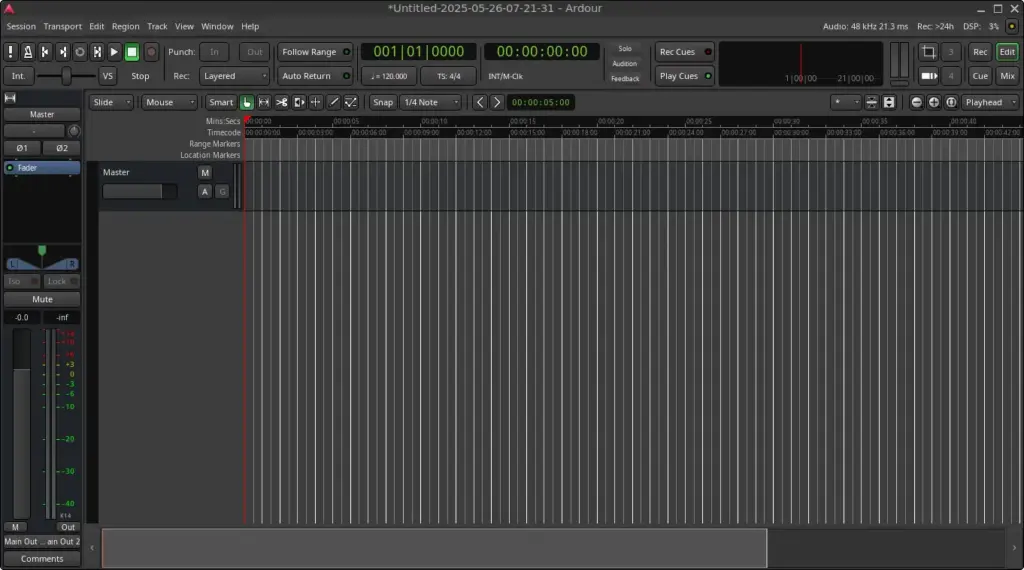If you’re looking for a powerful tool to record, edit, and mix audio on FunOS, Ardour is one of the best digital audio workstations available in the open-source world. Whether you’re a musician, audio engineer, or content creator, Ardour gives you professional-grade tools without the need for proprietary software. This article will guide you through the steps to install Ardour on FunOS, launch it, and even uninstall it if needed.
What is Ardour?
Ardour is a full-featured digital audio workstation (DAW) used by professionals for recording, editing, mixing, and mastering audio and MIDI projects. It supports multitrack recording, non-destructive editing, automation, plugin support (LV2, VST, and others), and is well-suited for music production, film scoring, and live performance setups.
Ardour is open-source and runs on Linux, macOS, and Windows, but its strongest community and performance are found on Linux-based systems like FunOS. Its powerful integration with JACK (Jack Audio Connection Kit) also makes it a great choice for users who require low-latency audio routing and flexibility.

How to Install Ardour on FunOS
Work on: 22.04.5 ✅ | 24.04.3 ✅ | 25.04 ✅ | 25.10 ✅ | 26.04 ✅
Installing Ardour on FunOS is simple using the terminal and APT package manager. Follow the steps below:
Step 1: Open a Terminal
You can open the Terminal in one of the following ways:
- Click the Menu button in the lower-left corner of the screen, then click Terminal
- Click the Terminal icon in the Tray
- Press Ctrl + Alt + T on your keyboard
Step 2: Update the Package List
Before installing any software, it’s a good idea to update the package list to ensure you get the latest version available from the repository.
sudo apt updateStep 3: Install Ardour
After updating the package list, install Ardour using the following command:
sudo apt install ardourWait for the installation to complete. The package manager will download and install all the necessary files and dependencies.
Step 4: Reload the Menu
After installation, the Ardour shortcut may not appear in the menu automatically. To make it visible:
- Click the Menu button in the lower-left corner
- Click Reload menu
Launching Ardour
Once the menu has been reloaded, you can launch Ardour by:
- Clicking the Menu button in the lower-left corner
- Navigating to the Multimedia category
- Clicking on Ardour
When you launch it for the first time, Ardour may ask you to configure audio settings such as the backend (JACK, ALSA, or PulseAudio) and sample rate. Follow the prompts based on your audio setup.
How to Uninstall Ardour on FunOS
If you no longer need Ardour or want to free up disk space, you can uninstall it by following these steps:
Step 1: Open a Terminal
Open the Terminal as described earlier.
Step 2: Remove Ardour
Use the following command to uninstall Ardour and its configuration files:
sudo apt remove --purge ardourStep 3: Remove Any Unused Dependencies
Clean up any packages that were installed along with Ardour but are no longer needed:
sudo apt autoremove --purgeStep 4: Remove User Data (Optional)
If you want to completely remove Ardour, including your personal settings and cache, run the following commands:
rm -rf $HOME/.cache/ardour*
rm -rf $HOME/.config/ardour*⚠️ Warning: This step will delete all your Ardour session settings and configuration. Make sure to back up any important projects before doing this.
Step 5: Reload the Menu
To clean up the menu and remove the Ardour entry:
- Click the Menu button in the lower-left corner
- Click Reload menu
Conclusion
Ardour is a powerful and professional audio production tool that integrates well with FunOS. With just a few terminal commands, you can install and start using one of the best open-source DAWs available. Whether you’re recording music, editing podcasts, or working on sound design, Ardour offers a rich feature set without the cost of commercial alternatives.
If you’re exploring audio production on FunOS, Ardour is definitely worth trying. And if you ever want to remove it, the process is just as straightforward.
Happy producing!

Leave a Reply